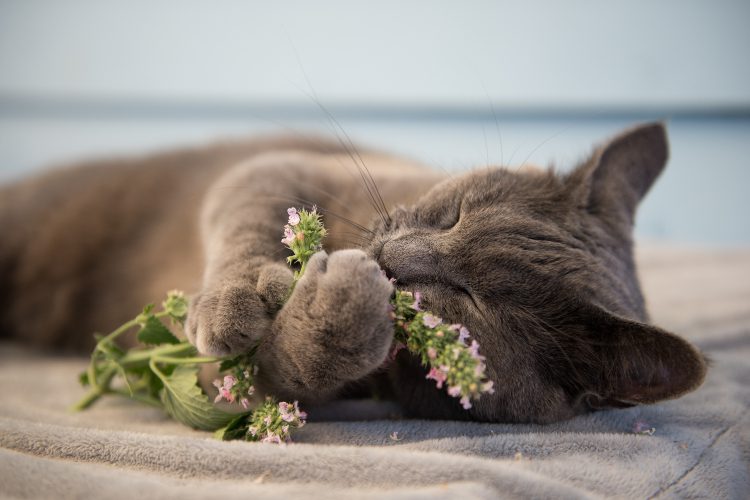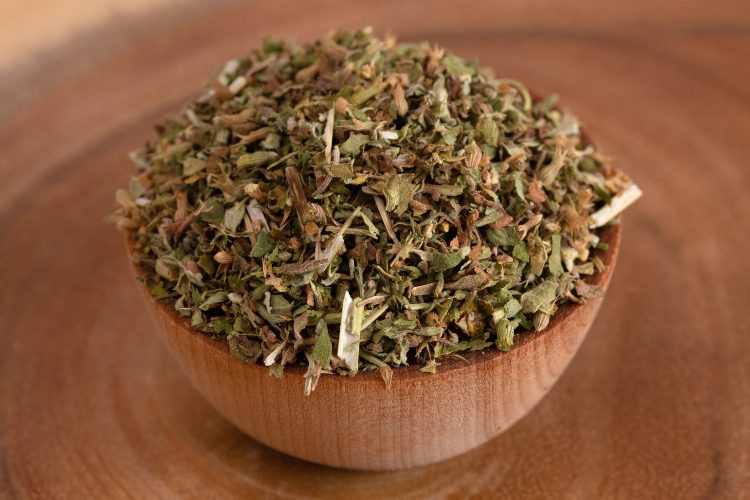
Vimaliss/Shutterstock
Believe it or not, catnip is not just for the cats in your life! In fact, catnip tea has been used for humans for many, many years. That's right! However, while it can help with everything from anxiety and insomnia to gut problems, there are some drawbacks...
Pros To Catnip Tea

Anna Hoychuk/Shutterstock
Nope, you don't need to save all the catnip for your cats! For those who don't know, catnip comes from Central Europe, though it can now also be found in Canada and the United States. And ever since humans found catnip, they have been making tea from it! Throughout the ages, catnip tea has been used to treat various illnesses like coughs and colds, hives, fevers, and even arthritis.
Today, however, catnip is mostly used to relax people, treating issues like anxiety, insomnia, and headaches. That's because the plant contains the chemical nepetalactone, which has a very calming effect on the human body. In fact, it's nearly identical to valepotriates, which is found in the supplement valerian, which helps people sleep! As a result, catnip can boost not only relaxation, but also your mood! There's a little-known secondary benefit to catnip, though. Catnip tea can also help you go to the bathroom and regulate menstruation during female periods.
However, catnip tea is not without its downsides...
The Herb’s Downsides

P Maxwell Photography/Shutterstock
As you might imagine, a common side effect of drinking catnip tea is drowsiness. While that's great if you're trying to relax or go to sleep, it's probably not the best thing to start your day! Plus, since it can send you to the bathroom frequently, it's probably best not to drink it at the office. The tea can also cause headaches and some digestive problems in some individuals. As such, try drinking a little bit at night and see how your body reacts. If you feel poorly or too tired, stop drinking the tea.
While it's okay for most adults to enjoy a little catnip tea every so often, it is not suitable for children. Likewise, pregnant women should also not drink this tea. Since it can make you go to the bathroom, the tea can actually lead to premature labor. That's right! For the same reasons, catnip tea is not recommended for people with pelvic or unitary track problems, like pelvic inflammatory disease (PID), as it can worsen these conditions.
Most importantly of all, if you need to have surgery, stop drinking catnip tea several weeks before your surgery date. Since it's a calming herb, it can mess with anesthesia and the central nervous system.
As always, if you think that catnip tea could help some of your health problems, talk with your doctor. They can help advise you on how much to take when, and if it will interfere with any of your other medications.
Sources: Healthline, Greatist, The Takeout



